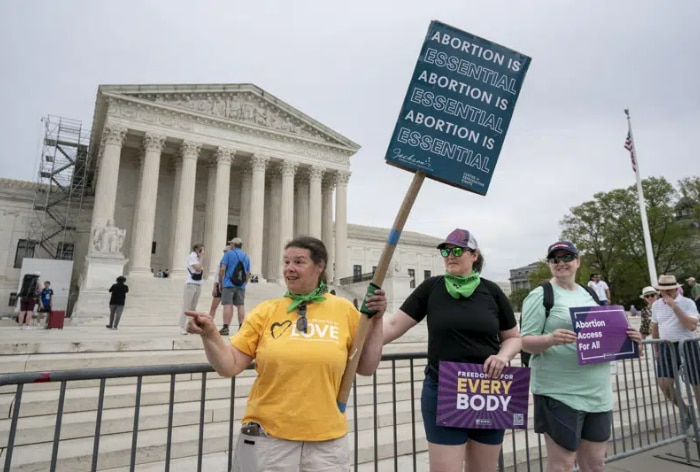A report in New York Times states that twelve of the country’s 32 states have also decriminalized abortion, and activists say they have renewed momentum to push local officials in the remaining states.
Washington: More than a year after the U.S. Supreme Court overturned Roe v. Wade, Mexican abortion-rights activists have seen a rise of American women crossing the border to seek abortions. For decades, abortion was criminalized in Mexico and much of Latin America with few exceptions, while in the United States, the 1973 Roe v. Wade ruling established a constitutional right to abortion. Today, Mexico’s Supreme Court has decriminalized abortion nationwide, making it legally accessible in federal institutions and eliminating federal penalties for the procedure. A report in New York Times states that twelve of the country’s 32 states have also decriminalized abortion, and activists say they have renewed momentum to push local officials in the remaining states.
By comparison, more than 20 American states currently ban or restrict the procedure after 18 weeks of pregnancy or earlier, with 14 states completely forbidding the procedure in almost all circumstances. Now the two pills needed for medication abortion – mifepristone and misoprostol – are cheaper and easier to obtain in Mexico. And networks of activists in Mexico have intensified their efforts to send the pills to the United States since the US Supreme Court ruling, according to a report in CNN.
Clinics in Tijuana and Mexico City, as well as activists in the northwestern city of Hermosillo, say they have seen women crossing the border from Texas, Louisiana and Arizona seeking access to abortion. “Before, the women from Sonora would go to the United States to access abortions in clinics,” said Andrea Sanchez, an abortion-rights activist, referring to the Mexican state that borders Arizona to CNN. “And now the women from the United States come to Mexico.”
US border agency chief meets with authorities in Mexico
The U.S. Customs and Border Protection said Sunday that the agency’s top official has met with authorities in Mexico to work on ways to better secure their shared border.
Acting CBP Commissioner Troy Miller traveled to Ciudad Juarez, a Mexican city on the Rio Grande, just south of El Paso, Texas, where he met with senior officials from the Mexican government and the railway industry on Friday.
During those discussions, Miller “urged coordination of efforts to diminish surging irregular migration, and continuation of lawful trade and travel while reiterating the need for coordinated engagement — to include mirrored patrols with local Mexican law enforcement agencies,” CBP said in a press release.
“We are continuing to work closely with our partners in Mexico to increase security and address irregular migration along our shared border,” Miller said in a statement Sunday. “The United States and Mexico remain committed to stemming the flow of irregular migration driven by unscrupulous smugglers, while maintaining access to lawful pathways.”

